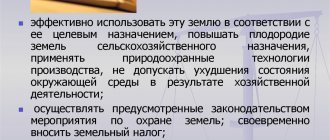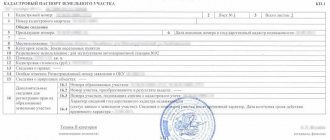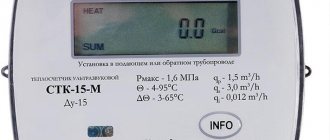In accordance with paragraph 1 of Article 4 of the Law on Registration, state registration is subject to ownership and other proprietary rights to real estate and transactions with it in accordance with Articles 130, 131, 132 and 164 of the Civil Code of the Russian Federation, with the exception of rights to air and sea vessels, inland navigation vessels and space objects. Along with state registration of real rights to real estate, restrictions (encumbrances) of rights to it are subject to state registration, including easement, mortgage, trust management, lease.
Restrictions (encumbrances) of rights to real estate arising on the basis of an agreement or an act of a state authority or an act of a local government body are subject to state registration in cases provided for by law. Restrictions (encumbrances) - the presence of conditions and prohibitions established by law or by authorized bodies in the manner prescribed by law , restricting the right holder in the exercise of ownership or other proprietary rights to a specific real estate object (easement, mortgage, trust management, lease, concession agreement, seizure of property and others). In accordance with civil and land legislation, the following restrictions (encumbrances) of rights to land plots are subject to state registration:
- mortgage of a land plot arising on the basis of an agreement and by force of law (Article 11 of the Mortgage Law);
- lease (Article 1.12 of the Law on Registration of Rights, the record of the encumbrance is removed upon registration of the lease)
- trust management of a land plot (Article 1017 of the Civil Code of the Russian Federation); (Article 1.30 of the Law on registration of rights, except for the contractual lease of land shares not listed in accordance with the Civil Code, paragraph 2 of Article 16 of the Law on the Turnover of Agricultural Land)
- rent (Article 586 of the Civil Code of the Russian Federation);
- arrests and prohibitions on concluding transactions, bail chosen as a preventive measure (Article 1.12.28 of the Law on State Registration of Rights);
- rights of claim brought in court (Article 28 of the Law on State Registration of Rights);
- obligations to preserve objects of cultural heritage (clause 6 of article 12 of the Law on registration, clause 4 of article 48, clause 3 of article 63 of the Law on objects of cultural heritage, clause 3 of article 29 of the Law on the privatization of state and municipal property )
- decisions on the seizure of a land plot (clause 4 of Article 279 of the Civil Code of the Russian Federation);
- easement (private) Art. 23 of the Civil Code (the right to limited use of someone else’s real estate object) (private easement Art. 274-277 of the Civil Code, Art. 1 of the Law on Registration of Rights);
- public easements for the laying and use of power lines, communications and pipelines, hot and cold water supply systems and (or) drainage, land reclamation; unhindered access, passage, passage; for placing boundary, geodetic and other signs;
- The concessionaire's rights of ownership and use of real estate included in the object of the concession agreement, real estate provided to the concessionaire, are subject to state registration as an encumbrance on the grantor's property rights (Article 15 of the Law on Concession Agreements No. 115-FZ of July 21, 2005).
Listed in Art. 56 of the Land Code of the Russian Federation, restrictions on land rights are established by acts of executive bodies of state power, acts of local government bodies or court decisions for an indefinite period or for a certain period. Such restrictions may be appealed by the person whose rights are limited in court. Restrictions follow the thing, and therefore, when the ownership of a land plot is transferred to another person, the restrictions remain. Special restrictions on rights to land plots - public land easements and other restrictions on land rights established in accordance with land legislation (Article 23, Article 56 of the Land Code), incl. Road easements within the boundaries of rights-of-way and roadside strips of motor roads for a period of more than 1 year (law on highways No. 257-FZst.25) Football easements (Article 32 of the Law on the preparation of the Chelyabinsk Championship-2018 No. 108-FZ) Easements in New Moscow for the location of federal and regional facilities (Chapter 3 on territories annexed to Moscow No. 43-FZ) Decision of state bodies. authorities and local self-government on the seizure of land. plot and the property located on it for the state. and mun. needs (clause 4 of article 239, clause 2 of article 281 of the Civil Code of the Russian Federation, part 3 of article 32 of the Housing Code of the Russian Federation) Decisions on the seizure of plots in Moscow, rights to the cat. Not registered In the Unified State Register (Part 17, Article 9 of the Law on territories annexed to Moscow No. 43-FZ) Restrictions on the right to erect buildings, structures, structures and carry out reclamation work in connection with the reservation of lands for state and municipal needs (Article 56.1 of the Land Code, clause 9 Regulations on the reservation of lands for state and municipal needs, approved by the Pomt-em of the Government of the Russian Federation dated July 22, 2008 No. 561) Features of registration of easements: A private easement is a real right of the person in whose favor it is established - the owner of the easement (servitude) , and at the same time it is a restriction of the rights of the owner and an encumbrance of the land plot. A private easement is subject to registration in the manner established for registration of rights of ownership (clause 3 of Article 274 of the Civil Code of the Russian Federation). A public easement is not a real right, since it does not have a right holder - an easement - it is only a restriction (encumbrance) of the rights of the owner of the property, subject in this capacity to the state. registration along with other boundaries of land rights. Due to the dual nature of a private easement, a record of the easement is made: in the event of an application by the owner of a land plot burdened with an easement, a record of the easement as a limitation is made only in subsection III-3 of the Unified State Register. In the case of an appeal for a servitude, two entries are made simultaneously - about the property rights (in subsection II-1 of the Unified State Register and about the restriction in subsection III-3 of the Unified State Register.
Types of encumbrances
- Mortgage: The owner pledges the property to secure the debt;
- Seizure: property is seized for debts;
- Trust management: the property is managed not by the owner himself, but by his trustee, legal representative (for example, in case of incapacity of the owner);
- Restrictions on the disposal of property for the needs of government bodies;
- Any other actions, transactions and restrictions that are burdensome.
Reasons for the restriction:
- laws of the Russian Federation. For reasons specified in laws, property may be subject to encumbrance;
- the court's decision;
- agreement, transaction, the result of which is an encumbrance;
- an act issued by government agencies.
Rent
The essence of a lease is the transfer of a land plot or real estate property for temporary use. Any object can be rented, except those withdrawn from general circulation.
The lease agreement is concluded in writing and must be signed by both parties. In case of any failure to comply with the form and procedure for concluding the contract, it will be declared invalid. When a plot, real estate or part thereof is rented out, a cadastral plan is attached, highlighting the part that is rented out.
Right to use real estate
Certain types of real estate rights may result in encumbrances:
- Rent. When a real estate lease agreement is concluded, certain obligations are imposed on the lessor. Upon subsequent sale of this property, the lease agreement will not be terminated. In this case, all obligations on the property are transferred to the new owner along with it;
- The right to use property free of charge is exercised according to the same principle. The sale of an object encumbered by this right does not imply termination of the contract. This means the transfer of the encumbrance to the new owner; as a type of annuity - lifelong maintenance with dependents. The basis for such content is the concluded agreement;
- Easement. There is a partial encumbrance on the land. The essence of an easement is that the owner of a plot of land has the right to partially use the neighboring plot. We are talking about laying paths, passages, etc. This is appropriate when it is impossible to get to an important object (for example, a water source) bypassing the neighboring site.
Arrest
The essence of the arrest is to impose an encumbrance on debt obligations of any kind.
The arrest provides for a ban on any alienation, and sometimes even the use of the property. No transactions can be completed until the arrest is lifted. Thus, the owner of the seized property is obliged to keep it safe and sound until the seizure is lifted or the property is confiscated.
Read more: Where to go if your boss quits his job
Advantages and disadvantages of encumbrances
The positive or negative aspects of encumbrances depend solely on each specific case. For example:
- When buying an apartment with a mortgage, you can buy real estate at a price much lower than the market price.
- For example, if an encumbrance in the form of rent is imposed on an apartment, then the new owner of the property will be assigned certain obligations. Such real estate cannot be called positive. The difficulty is that the mortgagee has the right to cancel the agreement if certain conditions are met.
- The purchase of residential real estate with third parties registered in it also does not bode well, especially if those registered are minors or incapacitated.
Didn't find the answer to your question? Find out how to solve exactly your problem - call right now:
+7 (Moscow) +7 (812) 407-26-30 (St. Petersburg)
Features of selling an apartment with encumbrances
As a rule, we are talking about mortgaged apartments. It is worth noting that in this situation the bank is absolutely not interested in real estate, only the return of money is important.
The procedure itself has the following differences from the standard one:
- It is necessary to rent two separate cells for the seller and for the bank
- Funds are deposited into a safe deposit box intended for the bank, after which a document is issued confirming the fact of repayment of the loan
- The concluded agreement between the seller and the buyer is concluded without the participation of the bank; its registration is carried out in Rosreestr
- The new owner receives documents confirming the fact that the encumbrance has been lifted.
The concept of encumbrance of property rights
The imposition of an encumbrance is a restriction on the owner’s ability to fully dispose of the property; in fact, certain obligations are imposed on him. The most common and obvious example is the annuity agreement.
From a legal point of view, the following can be distinguished:
- An encumbrance is the right of a third party or persons to an object of property that arose as a result of any circumstances. Moreover, citizens who have this right are not the owner of an apartment or house.
- In fact, the effect of the encumbrance begins only after a judicial act or agreement between the two parties.
How can I find out about encumbrances?
Naturally, when purchasing real estate, you need to carefully check all the information about the property you are purchasing, otherwise there is a risk of getting into a lot of problems.
There are two options by which you can establish the presence of encumbrances:
- Enlist the help of a special agency that deals with real estate transactions. This method is beneficial for the buyer in that the inspection will be carried out by a professional who has sufficient experience and knows all the inspection algorithms. However, there is still a certain amount of risk, for example, a large number of unscrupulous or simply inexperienced specialists have appeared on the market.
- Carrying out an independent check can also give the correct result. To do this, you will need to obtain an extract from the Unified State Register. You can even order such a document via the Internet.
The certificate will contain the following information:
- All property owners. This will help establish whether the seller actually has title to the property.
- Technical data of the object.
- The presence of any restrictions or encumbrances.









